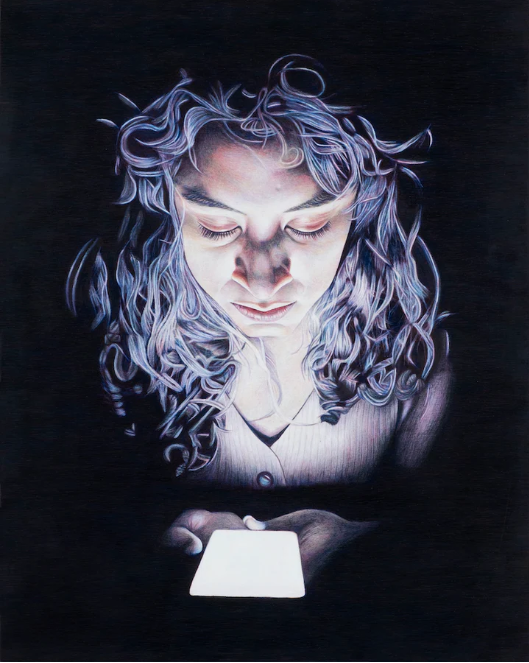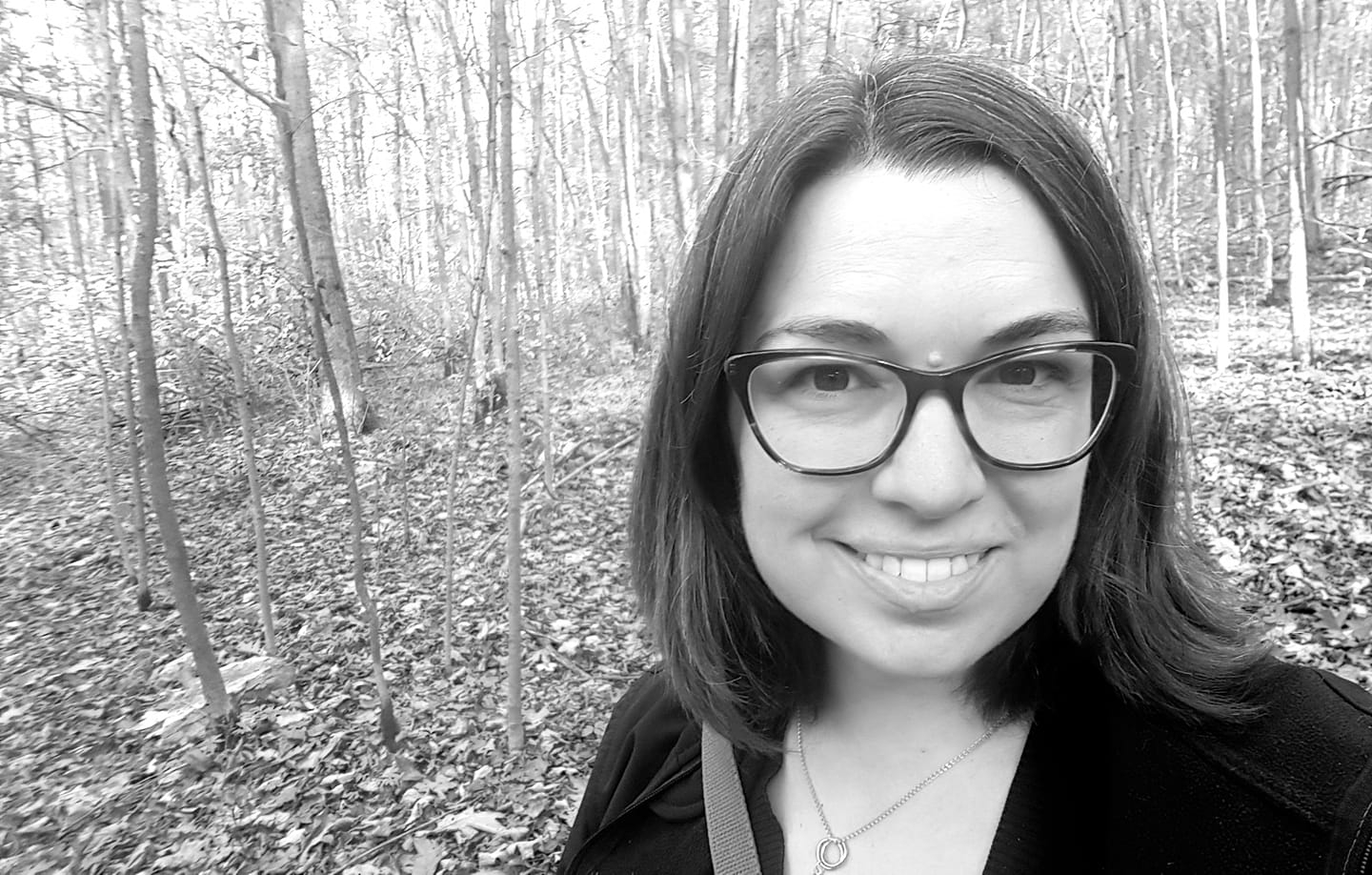“Attention is the rarest and purest form of generosity.”
This is a favorite quote of mine. It’s from the blazing-bright mind of Simone Weil, a philosopher in the early 20th century who lived only to the age of 34, but in that brief life left a shining and complex legacy of ideas.
To Weil, the idea of paying attention was not about a concerted effort to focus or to sort out solutions to something, but rather something much more contemplative. She saw attention as being fully present with a mystery and yet resisting the urge to solve it.
I wonder what Weil would have thought about how the rushing stream of difficult things that need our attention has, in recent decades, burst its banks to become a never-ending deluge. Specifically, I would be fascinated to hear her perspective on doomscrolling.
It’s so easy to sink into doomscrolling – compulsively checking and re-checking social media for relentless updates on the scary news of the day. And there’s a sort of a brittle moral shine to it, like a piece of fool’s gold. We care about what’s going on, about the suffering of others, and we know it’s important to be aware and to be compassionate. It’s a good thing to want to be a human being who has their eyes open, who is paying attention.
The shine dulls pretty quickly as we find ourselves navigating guilt, shame, and anxiety. Guilt that we have the privilege of just reading about something when others have to experience it in real life. Shame when we have set a boundary that we just can’t read another article about [fill in the awful news], because we feel like a bad person for choosing not to be aware. Anxiety when we feel like we can’t do anything about anything, because we’re absorbing all these situations that we don’t have control over.

Ironically, when we pay attention in an unhealthy way, we may think that it’s an act of our hearts being tender and open, but what we’re actually doing is accelerating the hardening and closing of our hearts. Finding a boundary-line to mark where the amount of information we need to know for empathy crosses into the paralyzing territory of overload is a constant tension that we have to live in. Getting that boundary right is essential to preserve the tenderness of our hearts – and it may look different for different people. It may even look different for the same person on different days.*
And for me, at least, there are some truths that I have to actively remind myself about as I navigate that tension.
One is that there’s nearly always people doing good, impactful work on the issue that I feel helpless about. That reminder makes me think of one of my favorite stories from the Old Testament, when the prophet Elisha’s servant is paralyzed with despair that their city has been surrounded by an enemy army. Elisha tells him to relax. “Those who are with us,” he says, “are more than those who are with them.”
In other words, you’re paying attention to a true thing, but you’re not seeing the whole picture. (Probably as close to doomscrolling as one could get in the 9th century BCE.) Friend, your eyes aren’t fully open.
In fact, that’s exactly what Elisha then prays for: “Open his eyes, Adonai, so that he may see.” The servant then sees the whole landscape around them filled with horses and chariots of fire. He finds himself fully present with a mystery.
Another reminder I give myself is that there are often things that I can do. There are actions I can choose to take, based on what I have learned with the open eyes of my heart. As my friend Heidi is wont to say, “All you can do is all you can do, and all you can do is enough. And you can almost always do more than you think you can do!”
One of my favorite aspects of the story of Elisha and his servant is that the enemies aren’t killed at the end. There’s no slaughter to conclude the clash of armies; instead, there’s a feast. Elisha directed the king of Israel to feed the enemy army, then they sent them home, and that was the end of the raids. Radical love did what it could do, and it was enough.

I head back to Simone Weil for a third reminder. My first two reminders were about how things get done – opening my eyes to others doing things, and the awareness of what things I can do myself. This is good and necessary. And yet, Weil was most insistent about the importance of simply sitting with our awareness, that there is value and meaning in intentional presence in and of itself. Be still and know.
Every person’s life contains raw moments, thin places of the soul, where it’s absolutely clear that there’s nothing we can DO other than be still and present in a difficult situation. So often it’s not what we do together, but how we simply ARE together that brings peace in the midst of mystery. Weil’s encouragement was that we shouldn’t wait until those moments are forced upon us; instead, as often as we can, whenever we can, we reframe our way of being still.
If you’ve kept tabs on my previous posts, you’ll know that I learn a lot from the wisdom of my kids. Philosophers in their own right, little ones have a way of thinking about life that can reframe tired old ways of seeing. Just over eight years ago, I sat in a thin place of the soul with my kids, letting them know that their Great-Grandpa Barron had just passed away. We shared some hugs and some tears, and then my youngest daughter, who was just four at the time, asked, “Mom, did Great-Grandpa already get up to heaven?”
“Well,” I confessed, “I’m not sure about how timing works after you die, but I would think that he got there almost right away.”
“And… and then, did he open his eyes?”
What an interesting question, I thought. “Yes, I think he did, Sophia,” I said out loud.
“And then, he got to see Jesus with his own eyes?”
“No doubt. He sure did.”
This conversation lodged itself deeply in my heart. In the years since, my internal open eyes have envisioned my grandpa in this way many times. The gentle-souled WWII military mechanic, standing at attention – but attention in the way that Simone Weil expressed it. Present with the Mystery, eyes open to peace.
May it be so for us all.
*I found this article about a year ago that articulates some helpful tactics to resist the temptation to doomscroll, to honor your physical, mental, and emotional health, and to self-regulate in a chaotic information age. I hope you find it as helpful as I did.
Header image: Miranda — Laura Heaney, colored pencil on wood panel


7 Responses
I amvery grateful for this.
Just what we needed right now! “The best counter to the bad is the practice of the good.” RR. It begins and ends with forgiveness.
Thank you; so needed this morning. Our very knowledge of others, at the very least, makes their anguish,situation, or despair real and seen. We can also wrestle with our God over these injustices of birth and place and continue to look to a new heaven and earth.
Oh, the WRESTLING! There’s a whole topic that wiser folks than I could (and should) write reams about! So many good mysteries to be present with in that space as well.
Thank you Kathryn! This is so much what I needed to read today! “Guilt, shame, anxiety” I can relate to that.
Thoughtful, settling, quieting, challenging! Thank you, Kathryn, for these well-written thoughts this morning.
This message was exactly what I needed, healing balm for me being. Thank you, Kathryn.